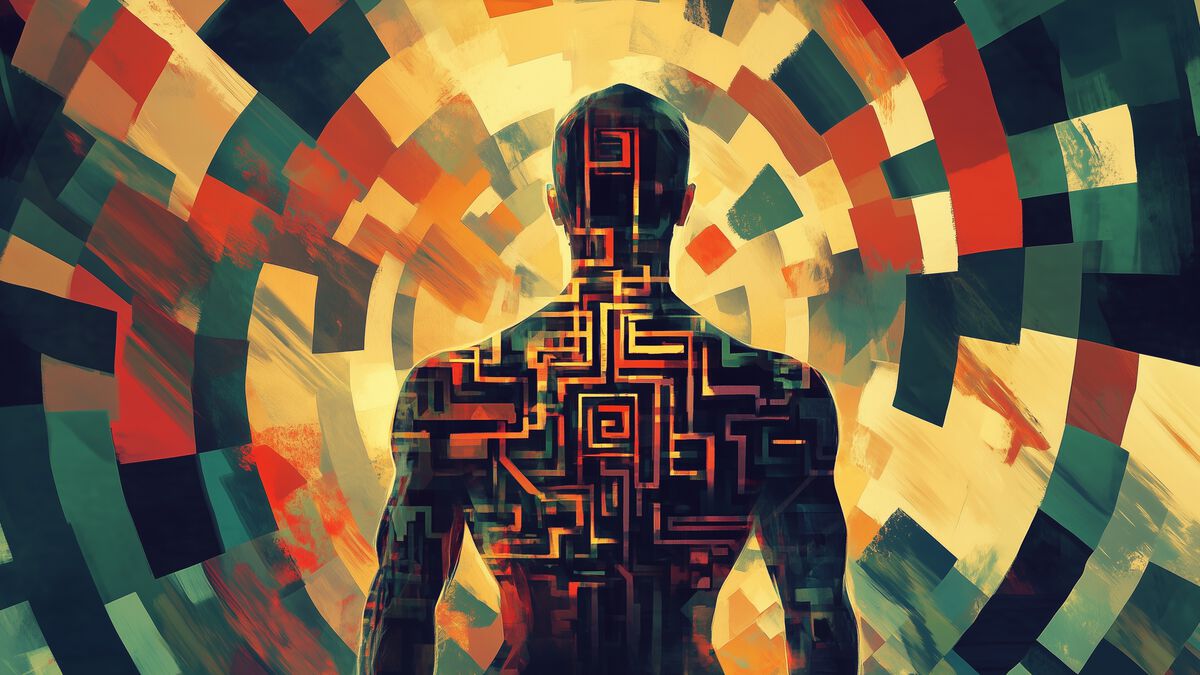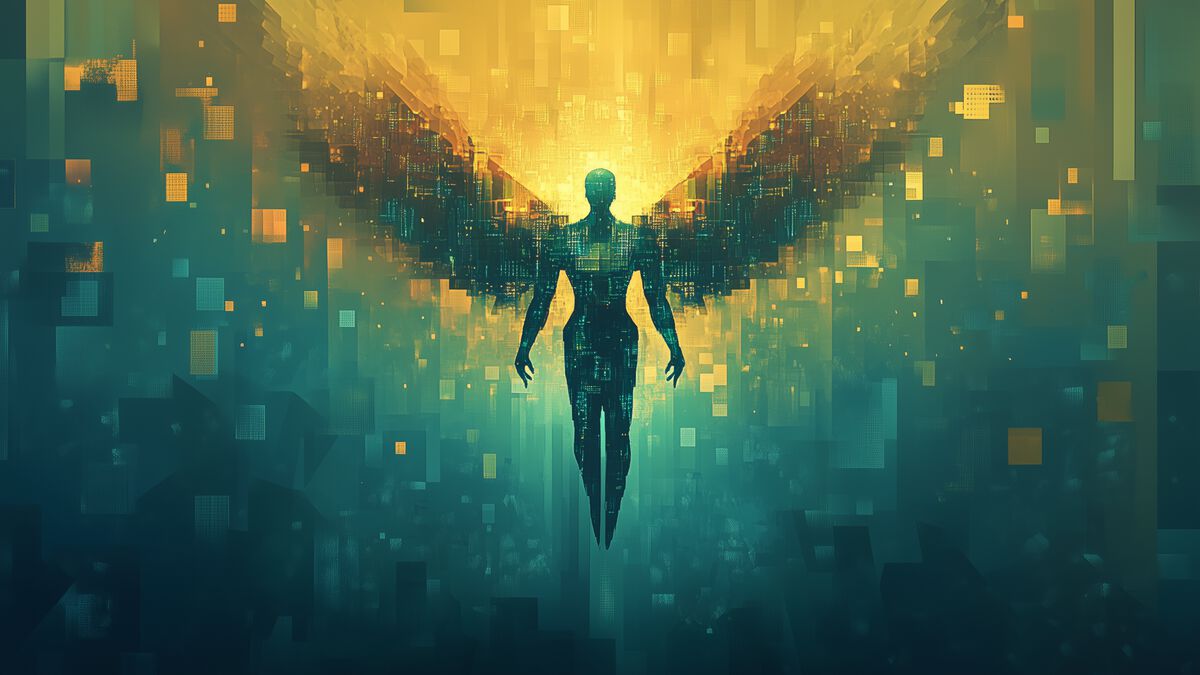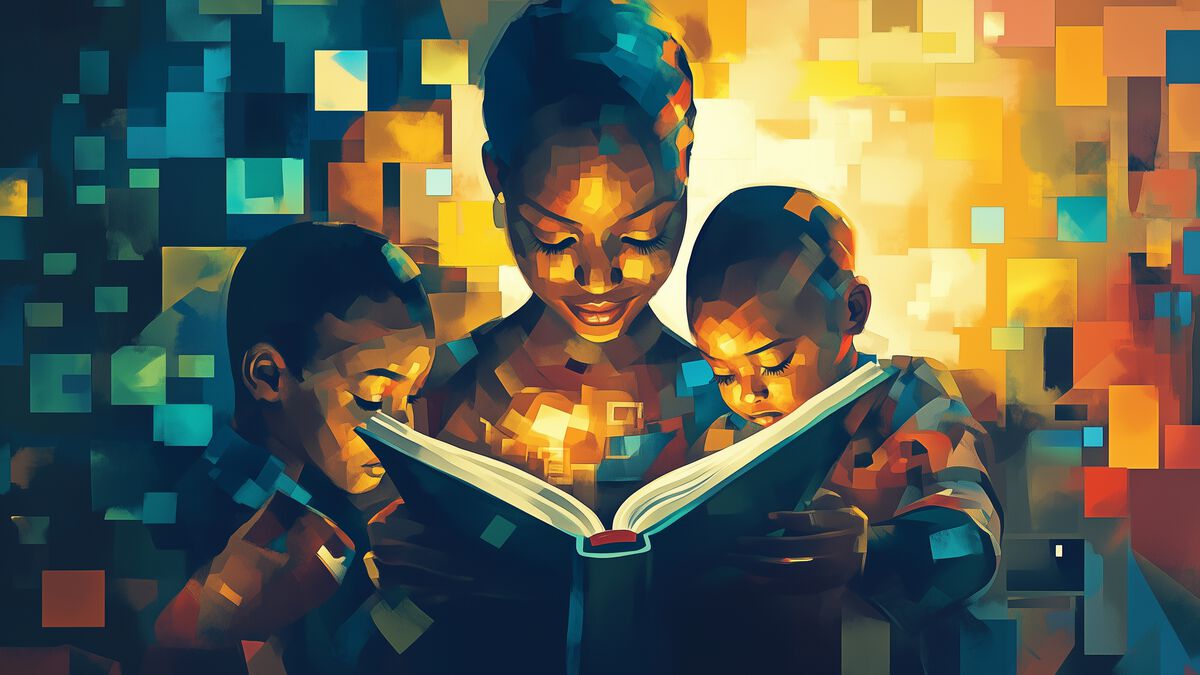Don't Die Can Be Good But Thriving Is Always Better
Lincoln Cannon
14 January 2025 (updated 3 January 2026)
Celebrity biohacker Bryan Johnson recently sent a provocative email to his followers. “I am the healthiest person on the planet,” he claims. True or not, he probably has your attention.
I don’t have concerns with the sensationalism, at least not in itself. Hopefully Bryan is every bit as healthy as he claims. His data is impressive, to say the least. And I admire his courage and tenacity.
But I do have some concerns with the ideology that Bryan promotes throughout the remainder of his email. He calls it “Don’t Die.” It could be a good start – better than so many alternatives vying for our hearts and minds. But, at least so far as he has yet articulated, the ideology has practical limitations that must and will ultimately impede its potential for primacy, as I’ll explain.
Bryan first introduced the “Don’t Die” ideology in a 2023 book by the same name. The book repeatedly, both explicitly and implicitly, touched on Bryan’s relationship with Mormonism. So, at the time, I wrote about that relationship in particular. Now, while enjoying the provocation of Bryan’s recent email, I feel to write some more general thoughts.
Before I get to my concerns, however, I want to establish some personal context. I like Bryan. And I think his work is nothing short of momentous on a sociocultural level. So if you’re looking for a reason to hate him, make fun of him, or dismiss him, go away.
Don’t Die Is Not the Universal Game
After elaborating on his health claim, Bryan characterizes “Don’t Die” as the “oldest and most played game in human history.” He says religion, business, military, politics, and even procreation are forms of this game. “It’s the universal game,” he says.
There’s an extent of truth to this. In the most general sense, survival is a necessary condition for the achievement of any goal. That which doesn’t exist doesn’t have any goals, let alone any capacity to achieve any goals. Thus, some extent of survival must be at least an instrumental goal.
But survival in the most general sense doesn’t necessarily entail evasion of death. That may sound nonsensical at first. But hear me out. You’ll undoubtedly end up agreeing.
In practically impactful ways, you can survive your death. And innumerable people already have. They’ve done this by teaching their children, loving their friends, creating artwork and machinery, and organizing communities that outlast their bodies. In each of these and countless other ways, people have been continuing to achieve their goals even after they die bodily.
To my mind, this means that part of us can survive death. In the least, it’s our influence and creation. It’s our esthetic. We might call it our “spirit.”
Now of course I’m not content with this kind of merely spiritual survival. After all, I’m a proponent of (nearly) universal resurrection, understood in the most literal sense as embodied resurrection, and pursued in the most practical sense as technological resurrection. But despite my discontent, I could not rightly claim that nothing survives bodily death. That’s simply a false idea, even if we were to concede to those who are skeptical of more elaborate notions of a spiritual afterlife.
So, returning to Bryan’s characterization of “Don’t Die” as the universal game, we can see a problem. As it’s true to some extent when “Don’t Die” is understood broadly, it’s likewise false to some extent when “Don’t Die” is understood narrowly. And this problem has practical ramifications.
Countless people, as recorded in history and envisioned in myth, have intentionally died in the narrow sense to facilitate achievement of their goals. A parent may sacrifice her life to save her child. A soldier may sacrifice his life to defend his country. Of particular note, the most influential ideology on Earth, Christianity, epitomizes the perpetuation and even magnification of goal achievement after bodily death.
These observations reveal that narrowly construed “Don’t Die” is not the universal game, even if it’s a prevalent game. At least some of us have been playing a different game since the dawn of history, recognizing that narrow death doesn’t necessarily terminate and may even facilitate pursuit of our goals. Again, the other game might be a broadly construed “Don’t Die.” But, in that case, I think we can give it a less confusing name.
Some Things Are Worse Than Death
Bryan observes that, in this time of accelerating technological evolution, we’re “giving birth to superintelligence. And we “no longer know how long and how well we can live,” or “how expansive and rich existence could be.” Compared to our superhuman potential, we’re like our prehuman ancestors who couldn’t begin to conceive of contemporary science, let alone understand it. And yet we’re embroiled in “debauchery, greed and violence,” killing ourselves and each other.
He’s exactly right. Maybe it sounds like an exaggeration. But I tell you with all the confidence that I can muster, he’s exactly right. Such are our imminent risks and opportunities in the apocalypse of intelligence.
But consider, with me, how this applies to the ideology of “Don’t Die.” If death were the worst possible outcome, avoiding and even abolishing the possibility of death would make a lot of sense. But, unfortunately for us all, death isn’t the worst possible outcome. Some things are worse than death.
My father died at age 47 in 1998 from his third cancer. His body was wasted, both by the disease and the attempts to cure and mitigate it through therapies and surgeries. His mind was wracked. Especially with some temporal distance from the event, I can easily judge his death as better than any further perpetuation of his suffering.
Science fiction offers analogous warnings that should be more terrifying. For example, in Ring World, people become wireheads with nearly incurable addiction to the stimulation of brain-computer interfaces that render them socially inert. In Altered Carbon, people are repeatedly resurrected by others who repeatedly torture them to death. And in The Matrix, humanity survives into a superintelligent future by becoming mere biological resources, alive but less than slaves, for a machine civilization.
As we don’t know how expansive and rich existence could be, we also don’t know how oppressive and poor existence could be. As there appears to be no upper limit on the opportunity, there appears to be no lower limit on the risk. Bodily death, in any case, is clearly not the lower limit. Not even death in the broader sense is the lower limit, as we can imagine grim scenarios that would be worse than the annihilation of civilization and all of its capacity to achieve goals.
Furthermore, the death of my father actually inspired my work and the development of Mormon Transhumanism. That, in turn, has influenced many others, including Bryan. It’s admittedly a speculative counterfactual and may sound arrogant. But I wonder, in a parallel universe where my father doesn’t die and I don’t share Mormon Transhumanism with Bryan, does Bryan still adapt his post-Mormon life into a functional Transhumanism?
In any case, Bryan has deeply influenced my life. Without him, and without the challenges that influenced the person he is, I would probably be a much different person. In particular, I doubt that I would have had the courage to pursue my entrepreneurial ambitions without his example and the activation energy he provided to pull me away from the corporate world. I’m grateful for his influence.
Thriving Is Better Than Not Dying
Bryan proceeds to claim that “no existing idea of human thought or societal organization is robust enough to meet this moment.” No existing political, economic, or religious ideology is sufficient. We need something new. And that something new, he claims further, is “Don’t Die.”
To some practical extent, I agree with Bryan’s first claim. No existing ideology is sufficient for our time. Indeed, none ever has been for its time. Humanity has always needed better ideologies.
But of course the ideologies at hand have always also provided direction, for better and for worse. And while doing so, they’ve also always adapted to changing circumstance. The world’s most influential ideology is again an obvious example. Christianity has repeatedly adapted to syncretize with the science of its day.
Now, as much or more than ever, our ideologies must continue to adapt to help us meet the challenges of our day. Yes, even Christianity must continue to adapt. That’s among the reasons that we founded the Mormon Transhumanist Association and the Christian Transhumanist Association. And of course new ideologies may also help us, as they have so many times before.
But I disagree with Bryan’s second claim, that “Don’t Die” contrasts favorably against all other ideologies. To the contrary, “Don’t Die” is either the wrong ideology or a confusing name for the right ideology. As I’ve explained, avoiding death is demonstrably not the universal game. And some things are clearly worse, even much worse, than death.
What would contrast favorably against all other ideologies, or at least against the incompatible aspects of all other ideologies? What would be a less confusing name for the right ideology? The answer, it seems to me, is both simple and inexhaustibly complex. The answer is thriving, or even the hope of thriving, which is what makes life worth living.
Thriving can be understood as final goal achievement. When we understand it that way, it becomes the purpose of all intelligence, not merely hypothetically but by definition. Achieving our goals, whatever they may be, is the universal game. Thriving is the universal game.
Now of course we have tensions and conflicts between and within our goals. And unfortunately that results in much suffering, which risk in turn informs the construction of ethics. One person’s thriving clearly isn’t always another’s. But it’s most certainly both of their games.
Survival, like all instrumental goals, is only part of the universal game. We must survive, we must acquire resources, and we must maintain some sufficient degree of internal and external coherence to achieve any final goal. But these instrumental goals should not be confused with final goals, as they are rarely if ever one and the same.
Surviving lets you play the universal game. But all of the points come from thriving. Some of us think that we can all get many more points much more quickly when we help each other not only survive, but also thrive. Some of us even think that we will ultimately prove capable of helping each other thrive despite dying from time to time.
I trust that Bryan aspires to such thriving. Indeed, Bryan would probably be first in line, if able, to facilitate technological resurrection for everyone, so long as there’s any real hope for us to thrive. Contrary to much said about him, I know from observation of his interactions with friends and family that Bryan is a generous person, and that not just in matters of finance that might come more easily with wealth. He’s also generous with his time and concerns.
Proceeding from Misunderstanding
Bryan says we probably won’t understand what he means based on what he’s written. “It takes about two hours of intense conversation to just begin to understand it.” That’s because it challenges traditional knowledge and intuition. And, he observes, the predictable emotions, responses, rebuttals, and reasoning quickly demonstrate misunderstanding.
In deference to that, maybe I’ve misunderstood. I’ve known Bryan a long time. I’ve read his book and many of his articles. But I can still misunderstand.
Heaven knows people commonly misunderstand and mischaracterize my ideas. Often that’s accompanied by ridicule and demonization. But sometimes it’s accompanied by constructive criticism and questions. My intent, here, is constructive criticism and a question.
How have I misunderstood you, Bryan?



